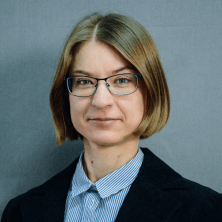Professor Milbradt is the special Envoy of the German Government for decentralization and good governance. He was one of those politicians in Eastern Germany who were responsible for decentralization and transformation process after reunification.
Especially since 2014, foreign countries and international organizations are supporting important reforms in Ukraine. “Germany decided to concentrate on decentralization because it has experience in successfully implementing this strategic reform”, – says Professor Milbradt.
During his last visit to Ukraine Prof Milbradt has kindly agreed to share his views on the Ukrainian decentralization reform with VoxUkraine.
– How do you generally assess the progress of decentralization reform in Ukraine?
– When I first came back to Ukraine in 2014 I learned that many detailed propositions to decentralize Ukraine had been prepared by Ukrainian experts during the previous years since the Orange Revolution with the support of international organizations and experts. Therefore, the new government had to decide which proposals to follow. The first step of implementing them is to pass the necessary legislation by the Verkhovna Rada.
A lot has been achieved since 2014. Decentralization is one of the most successful reforms in Ukraine and according to the polls a very popular reform as well. Often people are not in favour of reforms because some of them are very painful and adversely affect their economic situation. However the decentralization reform is an exception.
– What was especially successful in this reform?
– Successful decentralization is not only transferring responsibilities to the local level, but also providing it with the appropriated funds perform the new tasks. Having their own resources is very important for local governments – now they can decide how to spend the money. I think this was very successful. However, it must be combined with building up capability by amalgamation because many local entities in Ukraine were too small for real self-government.
Basically, Ukraine followed the path of other Eastern European countries. In Eastern Germany, we had the same problem. We all had followed the old communist way – divide and rule – thus we had very small territorial units and needed a territorial and functional reorganization of the local level too to create strong and capable local self-government.
– However, some of the hromadas are still too small and some of them still don’t have enough resources to provide services which they should provide. How to solve this problem?
– This is a step-by-step process. The new amalgamated hromadas have an average population of about 10 000 inhabitants. I think this figure is fine. However, in the beginning some new hromadas with a much lesser population were created. In this case further amalgamation is necessary in extreme cases and after consultation with the population.
Administration is another problem. You need well-trained and competent civil servants with a proper salary. Unfortunately, the law on the local civil service was not enacted, as it was vetoed by the president and the Verkhovna Rada couldn’t find a compromise. A new draft has been introduced in the Rada but it is too late to pass it before the new elections of the Parliament. I hope that this draft will be passed by the new Rada soon.
– Can you name the most successful things in the decentralization reform and things that probably did not go so well?
– In the majority of oblasts, the process is well under way, it is successful and most of the newly elected mayors are able to fulfil their enlarged competences. On the other hand, there are still many rayons in the country where no amalgamation took place and no transfer of responsibilities happened. This is becoming a big problem.
If you look at the map of Ukraine, you find many white spots, which must be filled. This problem occurs when you (correctly) start with voluntary amalgamation. But you need to reorganize the whole territory in the end. So the next step should be to increase the speed of amalgamation and finished it in due time.
You can increase incentives and persuasion as cut red tape, but eventually you need a concept to deal with the rest which includes a deadline and the political will to amalgamate by law. Normally to show the stick is very successful, only in a very few cases you have to use it. That will be the task of the new government after parliamentary elections.
– What are the other necessary steps for the reform except for mandatory amalgamation?
– You can increase incentives for voluntary amalgamation. You have to guarantee local autonomy and make clear that there is no way back to the overcentralized and undergoverned soviet model. Therefore, you need a Constitutional amendment according to the European Charter of Local Self-Government, which Ukraine has already signed and ratified. Up to now, the whole reform is based on simple laws, which can be changed by the Rada at any time. Unfortunately, the draft constitutional amendment was not passed because it was mixed up with the Minsk process.
Second element is a stable financial perspective for the new hromadas. Not only for the next year after amalgamation, but for the future as well. You need guarantees in the Constitution that the local entities get appropriate funds, by own taxes, shared taxes and additionally unconditional grants from the center based on objective criteria.
The third element is competent staff with a decent salary including a law a local civil service.
The fourth element is planning authority for the whole territory of the hromadas. Draft laws are laying in the Rada and should be enacted as soon as possible.
Another question is very closely connected to the amalgamation process. If Ukraine is creating more capable hromadas, bigger units and transfers competences to them especially from the rayons, you have to decide what to do with this level. Now Ukraine has nearly 500 rayons. That is too much if the government aims to reduce the number of hromadas from originally over 11.000 to 1.000-1.500.
Therefore you have to decide on the rayons level as well. Do you need them? If yes – what are their future competences? As many of the old competences are transferred to hromadas, you should give them new competences to them, for instance according to the sectoral deconcentration of line ministries (health education etc). If Ukraine wants to maintain the rayon level as I think the country will do, it must not only reduce the number of rayons, but also redefine their future role as well. This step is still missing. To overcome obstacles of decentralization on the rayon level you must give those who are employed by them a new perspective. If they fear to lose their jobs because of decentralization on the local level, they will not be very helpful for the reform.
– You just said that there must be some guarantee that local communities will get money. How can the government guarantee that?
– You can write in the Constitution that hromadas are entitled to get appropriated funds to fulfil their basic needs. Second element – you can give to hromadas own taxes. You can also allow them to decide on rate of certain taxes. This will give them a stable financial base, money that can be spent autonomously.
Grants are a further element, but you have to be careful not to reduce local autonomy by too much conditionality. You should give some grants without conditions — for example for fiscal equalization: to those hromadas that have very low tax income. In this case, grants should be provided to reduce the differences between rich and poor communities and ensure that even very poor hromadas can fulfil their duties. On top of this, you can also transfer money for special investments or important services but the conditions shouldn’t be too strict.
Too much conditionality would deprive hromadas from the autonomy we are trying to provide to them and increase the temptation of higher levels of administration to interfere in local matters and obstruct self-government. This problem existed in all countries and you have to solve it by a smart system of financial relations between the different levels.
– In one of your interviews, you mentioned that decentralization can mitigate the problem of political and economic influence of oligarchs. How can it be done?
– If you decentralize, you decentralize power, money and the possibility of corruption. Fighting corruption is easier at local level because there citizens better know what is going on. It is easier to fight small bad guys than the big bad guys at the top. International experience shows that decentralization can be an instrument to reduce corruption.
The second element is that if municipalities collect their own taxes then people are trying to comply with taxes better than when taxes are paid to the center. You are less scrupulous to cheat the national government than the local government. You know better for what your tax money is spent.
– However, there is still a problem — often the tax administration does not provide local government with information on tax collections within their territory.
– You are right. The more transparent a process is, the better it will work. Decentralization is not a solution for all the problems; it is only one step for better governance.
– In your view, can the central government roll back the decentralization reform?
– I have no indication that the new politicians will roll back decentralization, because it is very popular. Why should they do this? After creating new hromadas you have a lot of competent self-confident mayors, a new class of politicians who will fight for their autonomy. I think that in Ukraine it will be impossible to turn back the clock like in Russia.
– There have been quite a few discussions in Ukraine about its political system. Some politicians propose to turn it into pure parliamentary republic. Would German political model suit Ukraine?
– There are pros and cons for presidential and parliamentary systems or something in between. France is a strong presidential country. In Germany, the chancellor elected by the parliament is very powerful but regional and local governments are strong too. You need a clear distribution of power. The problem of the current Constitution of Ukraine is that it has a lot of Soviet legacy and often the distribution of competences is not very precise.
The Government is in charge of administering the country, but the president can select and nominate the head of the oblast and rayon state administrations. In some aspects, your political system is not a very functional system. The best way is to clearly opt for a consistent system and adjust the constitution if necessary.
– There are many discussions of an extended use of such tools as a referendum. Some politicians suggest providing ‘more voice to people’ with it. Do you agree?
– You have to be careful with referendums because there you have to face the danger of populism. For example, a referendum in France stopped the EU constitution, a referendum on brexit in the UK has also caused many problems. I think it is not good to decide very complicated questions by referendum, especially when the results are influenced by populism and fake news. For instance, should we decide tax rates by referendum?
A different case is Switzerland, where you have all sorts of referendums sometimes multiple times per year. The Swiss citizens is accustomed to this system and is very careful — only ⅓ of propositions brought to referendums are accepted. In other countries, it is different.
You have to decide what questions should be decided by a referendum. For example, 30 years ago, the land tax rates in California were permanently lowered by a referendum. Since then the government is constantly near bankruptcy. In Germany, we have no referendum on the national level due to the misuse of it by communists and nazis in the interwar period, but on the state and especially on the local level, but under strict conditions. Examples are referendums on biodiversity, school questions, development planning, urbanism, but not on foreign policy or national security.
– What would be the criteria for measuring the success of the decentralization reform in Ukraine?
– First, it is changing the mind-set. People become more responsible for themselves. If you elect a mayor or a local rada, the citizens are responsible for them in the end and have to bear the consequences of bad policy. It’s not something imposed from above. And people can correct this mistake — elect a new mayor or rada. When there are 10.000 voters at the local level, each individual vote is more important than in the case, where 30 million voters in national elections. In addition, you know and understand the problems of your local community better than national problems.
Ukraine had been a very top-down country of the soviet style, where the center decides nearly all. Now this changes. Ukraine is adopting a bottom up-model.
– But there is not only political responsibility at the local level but also an administrative one. E.g. there is a state audit. Therefore, some people at the local level are afraid to do anything in order not to make mistakes. What would you advise to them?
– First, making a mistake is human and normally not a criminal offense. Generally it’s the citizen who can influence and correct mistakes by their vote. However, local authorities must respect the national law, especially public and criminal law.
Ukraine should introduce a system of legal supervision of local governments, which can replace partly traditional control systems. Supervision should provide not punishment but cooperation and advice to local administrators because in many cases they do not want to break the law intentionally. Previously “prokuratura” was in charge, but it was a wrong institution.
You can reduce subject specific controls, give the local governments more discretion and concentrate your efforts on legal supervision and audits. The Council of Europe together with Ukrainian experts made a proposition to organize such a supervisory authority. Now the draft law is prepared by the Ministry of Regional development.
– There is another serious problem in Ukraine: when city mayors occupy their positions for decades and literally merge with local mafia. Decentralization would not really help in this case.
– Exactly. Because it is not a panacea against everything. You need a properly functioning appropriate legal order and functioning judicial system to punish the misuse of power, but at the same time to defend the autonomy of the local government vis-a-vis the central government. Ukraine should create as much transparency as possible on all levels. Therefore, it is all interconnected.
– How much power should central government transfer to the local level?
– Germany is a country where local governments are very powerful. Decentralization was one of the main elements of the transformation from a communist to a democratic system. All Eastern European countries have gone through this to various extents. It is your decision how much you want to decentralize. Due to your history and political situation, I assume that you will never adopt a federal system. So I am not talking about federal system, I am talking about local self-government based on the European principle of subsidiarity, I am not here to convince you to adopt the special German system, I am here to convince you to look at European countries and choose whatever suits you. Reform is your task; you cannot just copy what has been done in other countries. As a European country, you should find your own Ukrainian way, guided by our common values.
Attention
The authors do not work for, consult to, own shares in or receive funding from any company or organization that would benefit from this article, and have no relevant affiliations






